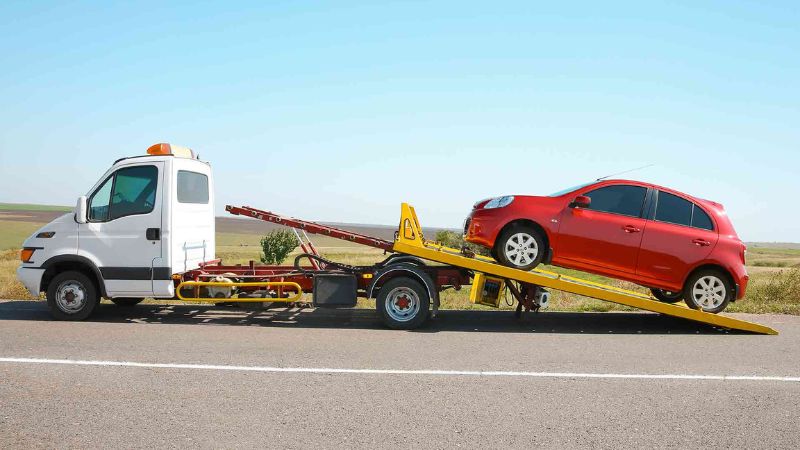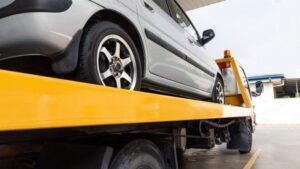How To Prepare Your Vehicle For Towing – Preparing your vehicle for towing is crucial to ensure a safe and smooth experience, whether you’re planning a road trip with a camper, moving, or assisting a stranded friend. Proper towing preparation not only protects your vehicle but also minimizes the risk of accidents on the road. To get started, you’ll need to focus on aspects like checking your vehicle’s towing capacity, inspecting the tires, and ensuring the hitch and towing equipment are in good condition. This guide will walk you through the essential steps you need to take before hitting the road with a trailer in tow. From understanding weight distribution to learning about towing accessories, we’ll cover everything you need to know to be prepared and confident. Follow these tips, and you’ll be set for a hassle-free towing experience.
How To Prepare Your Vehicle For Towing?
Understand Your Vehicle’s Towing Capacity
Before attempting to tow, you should first determine your vehicle’s towing capacity. This information is usually found in the owner’s manual or on the manufacturer’s web site. Towing capacity is the maximum weight your vehicle can safely tow, including the trailer and its cargo. Overloading can cause severe strain on your vehicle’s engine, transmission, and braking system, increasing the risk of accidents. To calculate the total weight, combine the trailer’s weight with the cargo you’ll be transporting. Ensure that this total is within your vehicle’s capacity, as exceeding it can compromise performance, reduce fuel efficiency, and lead to costly repairs. Always prioritize safety by staying well within the recommended limits to ensure a smooth towing experience.
Also Read:- Things To Know About Towing An Electric Car
Inspect and Prepare Your Towing Equipment
Once you’ve confirmed your vehicle’s towing capacity, it’s time to inspect the towing equipment. This includes the hitch, tow ball, safety chains, and electrical connections. Check the hitch to ensure it is securely attached and rated for the weight you intend to tow. If your hitch doesn’t meet these requirements, upgrade it to a higher-rated one. The tow ball should fit tightly into the receiver, and safety chains should be crisscrossed under the trailer tongue, which prevents the trailer from detaching completely if the hitch fails. Lastly, verify the electrical connections for the trailer’s lights and brakes. Test the brake lights, turn signals, and hazard lights to ensure they function properly. These lights are essential for communicating with other drivers and ensuring safety on the road.
Check Tire Pressure and Braking System
Tire maintenance is critical when preparing your vehicle for towing. Check the tire pressure on both your vehicle and trailer, as under-inflated tires can lead to poor handling, reduced fuel efficiency, and an increased risk of blowouts. Inflate the tires to the recommended pressure level, which can typically be found on the vehicle’s door frame or in the owner’s manual. Also, examine the tire tread for signs of wear and tear. Worn-out tires can compromise traction, especially when hauling heavy loads. Additionally, inspect your vehicle’s braking system, as towing adds extra weight that demands more braking power. If your trailer is equipped with brakes, ensure they are synchronized with your vehicle’s brake system. This setup distributes braking force, preventing your vehicle’s brakes from overworking and reducing the risk of overheating or failure.
Ensure Proper Weight Distribution
Proper weight distribution is essential for stability when towing. If your trailer is not loaded correctly, it can lead to swaying, poor handling, and even accidents. Place heavier items closer to the trailer’s axle to keep the center of gravity low and balanced. A general rule of thumb is to load 60% of the weight toward the front half of the trailer and 40% toward the back. This arrangement reduces the risk of trailer sway and maintains steady control. Additionally, avoid stacking items too high, as this can raise the trailer’s center of gravity, making it more prone to tipping. Use tie-downs or straps to secure the load and prevent items from shifting during transit. Properly distributed weight not only ensures a safer towing experience but also reduces wear on your vehicle’s components.
Adjust Mirrors and Test Lights
Visibility is crucial when towing, so adjusting your mirrors is an important step. Standard mirrors may not provide enough visibility to see behind a trailer, so consider using towing mirrors or mirror extensions. These attachments increase the field of vision, allowing you to monitor traffic, blind spots, and the trailer’s position. Once your mirrors are set, test all the trailer’s lights, including brake lights, turn signals, and hazard lights. Functioning lights are essential for communicating with other drivers, especially during nighttime or inclement weather. Inadequate lighting can lead to accidents and is often a violation of traffic laws. To test the lights, have someone stand behind the trailer while you activate each signal to confirm they work. This simple check can go a long way in ensuring your safety on the road.
Also Read:- Right Towing Hitch For Your Vehicle
Plan Your Route and Drive Carefully
Finally, before you set out, take a moment to plan your route and review any potential challenges along the way. Avoid roads with steep inclines, sharp turns, or areas with low clearance that may not be suitable for towing. Remember that towing impacts your vehicle’s handling, acceleration, and braking distance, so allow extra time and space when driving. Maintain a slower speed, especially when navigating turns, to keep the trailer steady. Be mindful of other drivers, and use turn signals well in advance when changing lanes. If your route involves long distances, schedule breaks to check the trailer’s connections, tire pressure, and load. A thoughtful approach to planning and driving can significantly reduce stress and make your towing experience safer and more enjoyable.
Conclusion
Towing doesn’t have to be complicated when you’re properly prepared. By following these steps to inspect your vehicle, hitch, and equipment, you’re setting yourself up for a safe towing experience. Remember, taking the time to prepare can prevent potential issues and ensure your journey goes smoothly. Whether you’re towing for the first time or have prior experience, a little extra preparation goes a long way. So, get your vehicle ready and enjoy your next adventure with peace of mind.
FAQs
What is the most important step in vehicle towing preparation?
Checking your vehicle’s towing capacity is crucial as it helps you avoid overloading and ensures a safe towing experience.
Do I need special equipment to tow a trailer?
Yes, you’ll need a proper hitch, safety chains, and towing mirrors to ensure safety and compliance with towing regulations.



